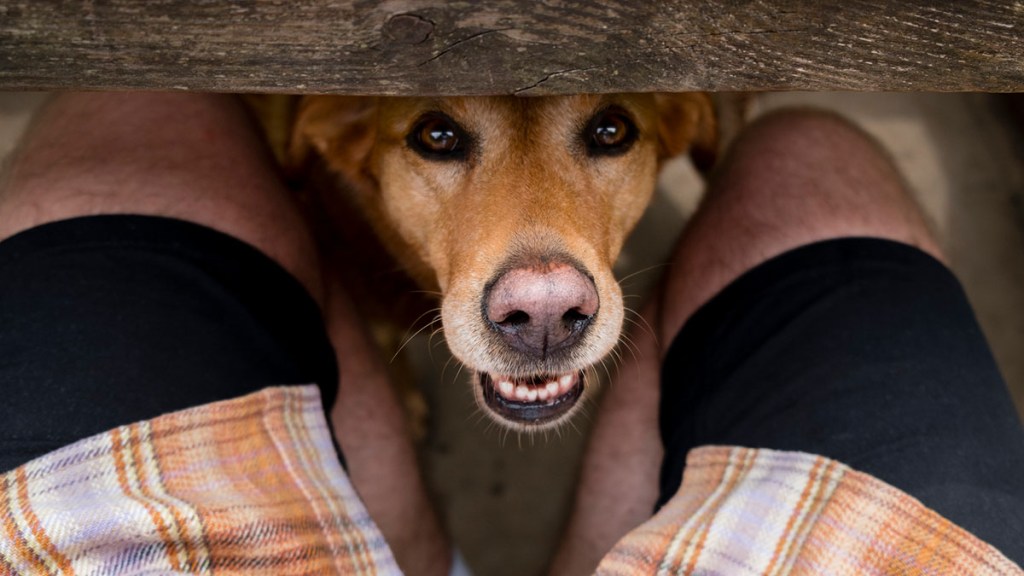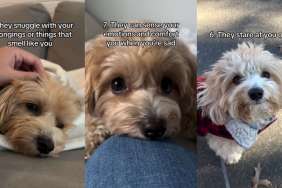While some dogs follow their pet parents everywhere they go out of sheer love, sometimes the reason why dogs stick to their humans like velcro is because of separation anxiety. Is your dog afraid to let you out of their sight?
Here’s how to tell if your dog is following you out of anxiety and, if so, what you should do to help your dog feel less anxious and give you some space.
Here’s why your dog may have separation anxiety
Many dog breeds, especially smaller lapdogs, are particularly fond of following their humans everywhere. These smaller dogs were bred specifically to be companion dogs, which means they are naturally more dependent on you. A few breeds that fall under this category include Italian Greyhounds, Chihuahuas, Pugs, and French Bulldogs.
Many herding dogs, such as German Shepherd Dogs and Australian Cattle Dogs, often become one-person dogs, as they were historically bred to follow the commands of one person.
Certain other dogs, such as Labrador Retrievers and Golden Retrievers, have also been bred to be the best companions they can be, so they will likely follow you anywhere you go — yes, including the bathroom.
Your dog may follow you due to reinforcement
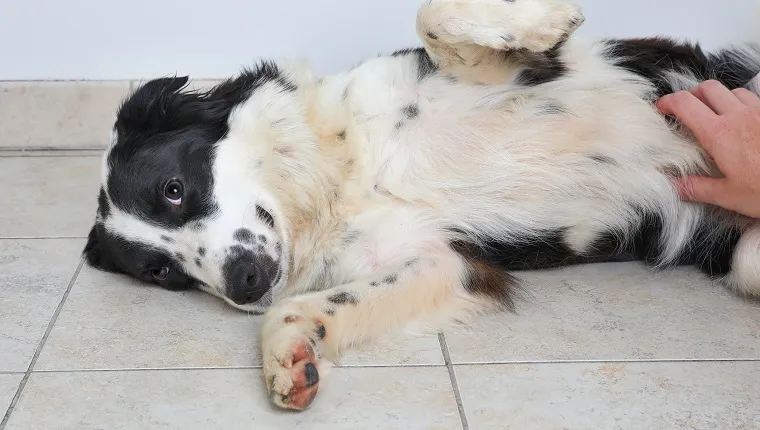
Your dog loves you, plain and simple.
They most likely associate you with pleasant or positive experiences, such as getting treats, belly rubs, and attention.
Once your doggo knows that you are a provider of all things great, it’s natural for them to follow you everywhere in hopes of receiving some of this positive reinforcement.
There are benefits to your dog following you
While your dog may trip you up once in a while by getting under your feet, there are clear benefits to having a velcro pup. Studies have shown time and time again that having a dog around greatly reduces human stress and helps stave off depression. There are health benefits for your dog, too; by being around someone who loves them as much as you do, their stress levels are lowered.
Being around you all the time also helps your dog get to know you better, which means that they will be able to better interpret your actions and mannerisms, leading to a stronger relationship.
When does following becomes a problem?

Having your dog follow you everywhere can be a great and rewarding experience, but there are times when it can become troublesome.
If your dog follows you – and only you – and refuses to interact with other humans, this can be a sign of high anxiety in your dog. They may cry or pace anxiously if you, their one human, is not in their sight.
To help an overly anxious dog learn to not be with you 24/7, you can set up a few parameters and take steps to train the anxious behavior away.
Preventing separation anxiety in dogs
Showing your dog that other humans have as much value as you will help them slowly detach from your feet.
Let your dog bond with the other people in your home by having another person feed, play with, train, or walk your dog.
Do you live by yourself? You can still have friends come over and shower your pup with affection.
Set boundaries
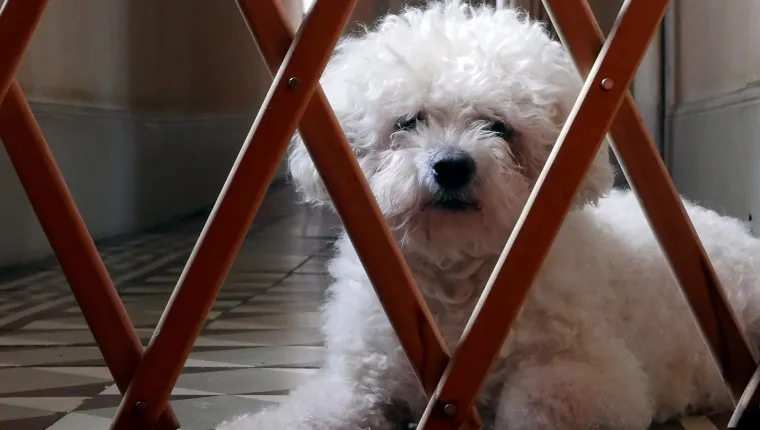
Hyper-attached pets want to keep an eye on you everywhere you go. Show your dog that the sky won’t fall when you are out of their eyesight by setting up boundaries. For example, putting a baby gate up between rooms will show your dog that, even if they can’t be within a six-inch radius of you, they’re still safe, and you will come back.
Shut the door when you use the restroom or enter another room, and then return again in a short period of time. Slowly but surely, your dog will learn that just because they cannot see you doesn’t mean you’re gone forever.
Don’t reward whining or other destructive behaviors
Anxious dogs will do anything from whine to eliminate in the house to seek out your attention. If you leave the room and your dog starts crying, do not run back to them to console them. This is simply teaching your dog that if they whine, scratch, or use another unwanted, attention-seeking behavior, they will get what they’re begging for. Do not reward the behavior.
Desensitize your pup to your departure
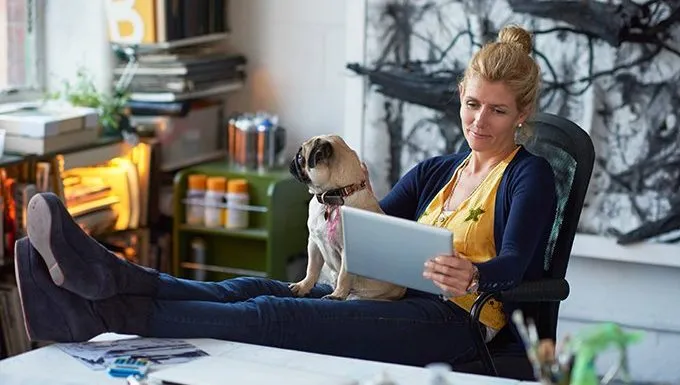
If you have an anxious velcro dog, they probably associate the jingle of your keys with your absence. Getting rid of these associations will help desensitize your dog to your departures, making every morning you leave for work a lot less stressful.
Work on making your leaving rituals, such as grabbing keys, putting on your coat, or turning off the lights, a nonchalant event in your dog’s mind by performing these tasks every few minutes and then not leaving. Your dog will eventually learn to stop associating these tasks strictly with your leaving.
Don’t shower your dog with attention all the time
If you’re playing with, sitting next to, or talking to your dog all the time you’re with them, there will be a stark difference once you’re gone.
Make the difference between your presence and absence less of a big deal by encouraging self-rewarding activities, such as chewing on a safe toy or playing with a doggy puzzle, so your dog learns how to entertain themselves.
If all else fails, consult a behaviorist
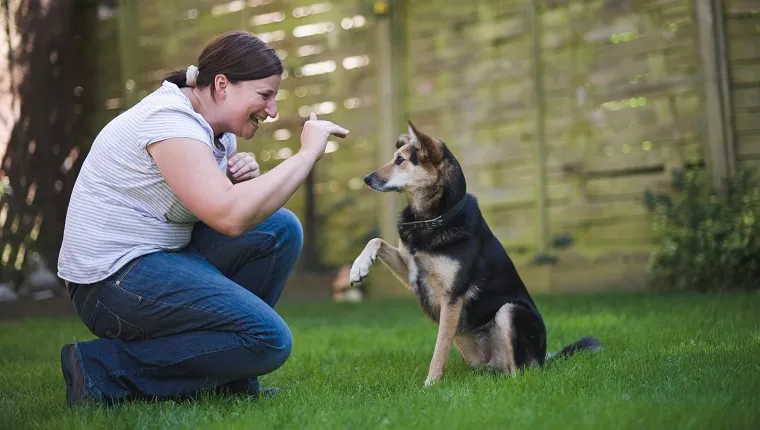
If you have done everything in your power for your pup who’s terrified of having you out of their sight, it might be time to call in a trainer or behaviorist.
Behaviorists are trained to help dogs with separation anxiety, and given your dog’s individual case, they’ll be able to offer behavior modifications to help your dog be more at ease.
Have you ever had a velcro dog? Do you have any tips for dog parents who want to help their pups relax? Let us know in the comments below!
